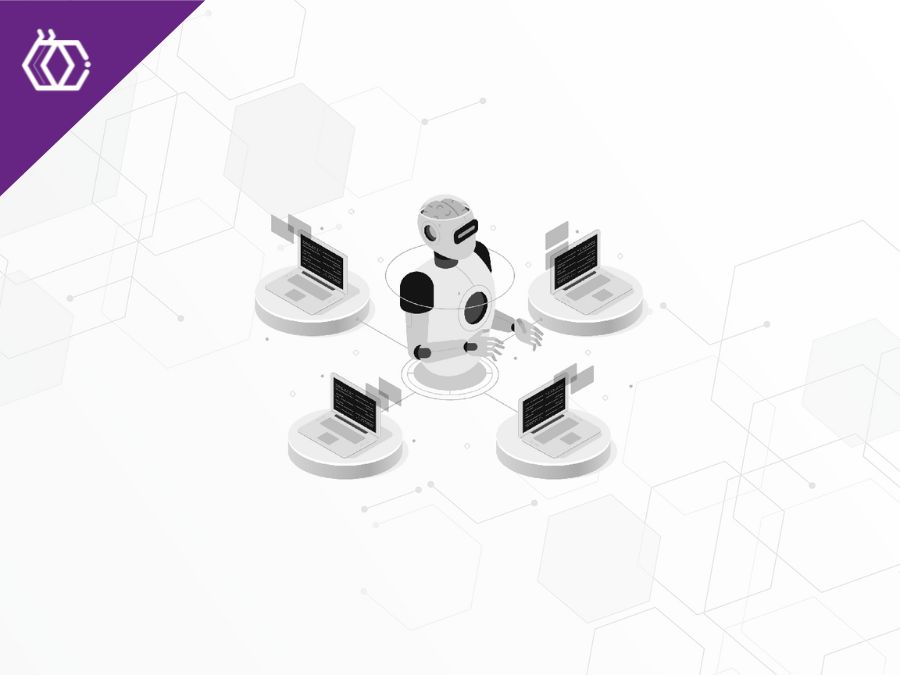

Machine Learning
(9 minutes of reading) Machine learning has witnessed exponential growth over the past few decades, driven by significant advances in algorithms, computational power, and data availability. As we move into an increasingly digitized and automated era, it is critical to examine the emerging trends that will shape the future of machine learning. In this text, we will explore several promising trends we expect to see in the coming years, ranging from the advancement of reinforcement learning to ethical and privacy issues. By understanding these trends, we can anticipate the changes that will shape the next phase of the machine learning revolution and prepare for the challenges and opportunities it will bring. Come read! Reinforcement Learning Advanced: The advancement of reinforcement learning is driving autonomy and adaptability in diverse areas such as robotics, gaming, finance, and healthcare. This approach allows systems to learn to make decisions through interaction with the environment, resulting in continuous improvements and adaptations in real time. As a result, a generation of more intelligent and efficient systems is expected, capable of dealing with complex challenges autonomously and dynamically, offering significant benefits in various practical applications. Large-Scale Deep Learning: With the advancement of large-scale deep learning, driven by increasing data availability and increasing computational power, a new era of even more robust and sophisticated models is anticipated. This evolution promises to revolutionize areas such as automatic translation, text generation and real-time video analysis. More complex models are expected to be able to capture subtle nuances and broader contexts, resulting in more accurate translations, more fluidly generated texts, and more detailed and contextualized understanding of videos. Furthermore, these advancements have the potential to drive innovation in a variety of fields, from smarter virtual assistants to more efficient surveillance and security systems. However, challenges related to processing large volumes of data and computational complexity will need to be addressed to fully realize this potential, which will require continued research and development efforts. Interpretability and transparency: These are crucial aspects as machine learning models become essential parts in a variety of critical applications, from medical diagnostics to loan origination. As these models become more complex and powerful, the ability to understand how they make decisions becomes critical to ensuring trust with end users and stakeholders. Developing methods that make these models more interpretable and transparent not only promotes the reliability of results, but also helps identify and mitigate potential biases or errors. In this context, approaches such as model interpretation, feature importance analysis, and explanation generation can play a crucial role, allowing users to understand not only model predictions, but also the underlying processes that lead to these predictions. As the demand for interpretability and transparency continues to grow, these methods are expected to become increasingly sophisticated and integrated into machine learning model development and deployment practices. In this way, we can not only harness the power of complex models, but also ensure that they operate ethically, transparently, and responsibly in a variety of critical contexts. Federated learning and privacy: With growing concerns about data privacy, federated learning, and other privacy-preserving techniques such as secure and multiparty learning computation, will become increasingly important. This will enable collaboration on machine learning models without compromising the privacy of individual data. A concrete example that illustrates the importance of federated learning and privacy preservation is the digital health scenario, where hospitals or healthcare institutions want to collaborate in building machine learning models for diagnosing or predicting diseases but need to guarantee the privacy of users. patient data. Federated learning allows each hospital to train a local model on its own data, keeping patient data secure and private. These local models are then combined to form a global model, without the need to share the raw data. Techniques like secure learning and multiparty Computation can also be applied to ensure data privacy during collaboration. Self-learning and meta-learning: The ability for machine learning systems to continually learn and adapt to new circumstances and tasks will be critical. This can include self-learning methods that allow models to improve over time, as well as meta-learning techniques that make them better able to generalize to new domains. An example of self-learning is a movie recommendation algorithm that analyzes user feedback about recommended movies and adjusts its suggestions based on that feedback, continually improving its predictions. Meta-learning can be exemplified by a system that learns to learn, identifying common patterns in different data sets and applying this knowledge to quickly adapt to new problem domains. Applications in emerging industries: Industries such as precision agriculture, smart cities, and autonomous mobility are just beginning to explore the potential of machine learning. These industries are expected to increasingly adopt data-driven solutions to solve complex problems and improve operational efficiency. In precision agriculture, machine learning optimizes the use of resources and maximizes agricultural productivity. In smart cities, sensor data is processed to improve the efficiency of public services and the quality of life of citizens. In autonomous mobility, algorithms allow vehicles to perceive the environment and make safe driving decisions. These applications demonstrate the potential of machine learning to drive innovation and improve operational efficiency across a range of emerging industries. Ethics and responsibility: With the increased use of machine learning systems in critical areas of society such as criminal justice, healthcare and education, ethics and responsibility in the development and use of these systems will become increasingly important. This includes the need to mitigate algorithmic biases, ensure fairness and transparency in automated decisions, and carefully consider the social and ethical implications of such systems. These trends reflect not only the technical advances expected in the field of machine learning, but also the social, ethical, and regulatory considerations that will shape its development and adoption in the coming years. Machine learning is playing an increasingly crucial role in emerging industries, offering innovative solutions to complex challenges. From personalizing healthcare to optimizing agricultural production and improving urban infrastructure, machine learning applications are shaping a more efficient and connected future. As we continue to explore and expand the potential of these technologies, machine learning is at the heart of a revolution that is fundamentally transforming the way we live, work and interact with the world around us.
Share this article on your social networks:
Rate this article:
[yasr_visitor_votes size=”medium”]



